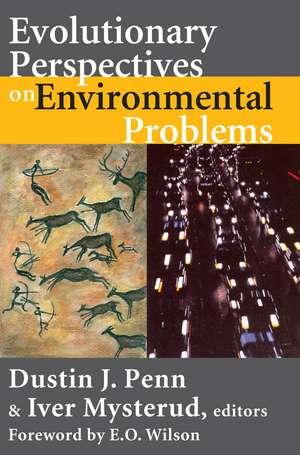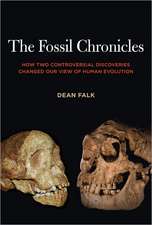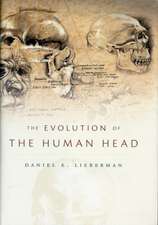Evolutionary Perspectives on Environmental Problems
Editat de Iver Mysteruden Limba Engleză Paperback – 15 feb 2007
Evolutionary research on human behavior has profound implications for the environmental sciences. The aim of this collection is to bring together a variety of chapters that show how and why. Part 1, "Human Nature and Resource Conservation," addresses environmental problems from different evolutionary perspectives. Part 2, "The Ecological Noble Savage Hypothesis," examines the notion that our environmental problems are due to Western culture, and that our ancestors and people in indigenous societies lived in harmony with nature until the corrupting influences of Western culture. Part 3, "The Tragedy of the Commons," explores the conservation of common-pool or open-access natural resources, such as fisheries, forests, grazing lands, freshwater, and clean air. Part 4, "The Evolution of Discounting and Conspicuous Consumption," looks at the problem of explaining why people are so ecologically short-sighted and why people in developed countries consume so many resources. Part 5, "Overpopulation and Fertility Declines," addresses the evolution of human reproductive decisions. Part 6, "Biophilia," aims to explain why people cherish nature as well as destroy it.
The goal of this volume is to introduce environmental thinkers to evolutionary perspectives on human behavior, and the new interdisciplinary sciences of evolutionary psychology and behavioral ecology. This reader aims to help bridge the artificial division between the biological and social sciences, and provide a synthesis between evolutionary sciences of human behavior and environmental sciences.
| Toate formatele și edițiile | Preț | Express |
|---|---|---|
| Paperback (1) | 434.74 lei 6-8 săpt. | |
| Taylor & Francis – 15 feb 2007 | 434.74 lei 6-8 săpt. | |
| Hardback (1) | 886.62 lei 6-8 săpt. | |
| Taylor & Francis – 15 dec 2006 | 886.62 lei 6-8 săpt. |
Preț: 434.74 lei
Nou
Puncte Express: 652
Preț estimativ în valută:
83.19€ • 87.09$ • 68.83£
83.19€ • 87.09$ • 68.83£
Carte tipărită la comandă
Livrare economică 05-19 aprilie
Preluare comenzi: 021 569.72.76
Specificații
ISBN-13: 9780202307558
ISBN-10: 0202307557
Pagini: 378
Ilustrații: 1
Dimensiuni: 152 x 229 x 24 mm
Greutate: 0.57 kg
Ediția:1
Editura: Taylor & Francis
Colecția Routledge
Locul publicării:Oxford, United Kingdom
ISBN-10: 0202307557
Pagini: 378
Ilustrații: 1
Dimensiuni: 152 x 229 x 24 mm
Greutate: 0.57 kg
Ediția:1
Editura: Taylor & Francis
Colecția Routledge
Locul publicării:Oxford, United Kingdom
Cuprins
Introduction; 1: Human Nature and Resource Conservation; 1: Human Behavioural Ecology and Environmental Conservation; 2: The Evolved Psychological Apparatus of Human Decision-Making is One Source of Environmental Problems; 2: The Ecological Noble Savage Hypothesis; 3: Game Conservation or Efficient Hunting?; 4: Behavioral Ecology of Conservation in Traditional Societies; 5: Evolutionary Ecology and Resource Conservation; 3: The Tragedy of the Unmanaged Commons; 6: The Tragedy of the Unmanaged Commons; 7: Closing the Commons; 8: Revisiting the Commons; 9: Grassland Conservation and the Pastoralist Commons; 4: The Evolution of Discounting and Conspicuous Consumption; 10: Conserving Resources For Children; 11: Two Truths about Discounting and Their Environmental Consequences; 12: Sex Differences in Valuations of the Environment?; 13: The Evolution of Magnanimity; 5: Overpopulation and Fertility Declines; 14: Evolutionary Economics of Human Reproduction; 15: More Status or More Children? Social Status, Fertility Reduction, and Long-Term Fitness; 16: The Demographic Transition; 6: Biophilia; 17: Biophilia and the Conservation Ethic; 18: Human Behavioral Ecology; Conclusion: Integrating the Biological and Social Sciences to Address Environmental Problems
Descriere
The twenty-first century presents an increasing number of environmental problems, including toxic pollution, global warming, destruction of tropical forests, extinction of biological diversity, and depletion of natural resources













